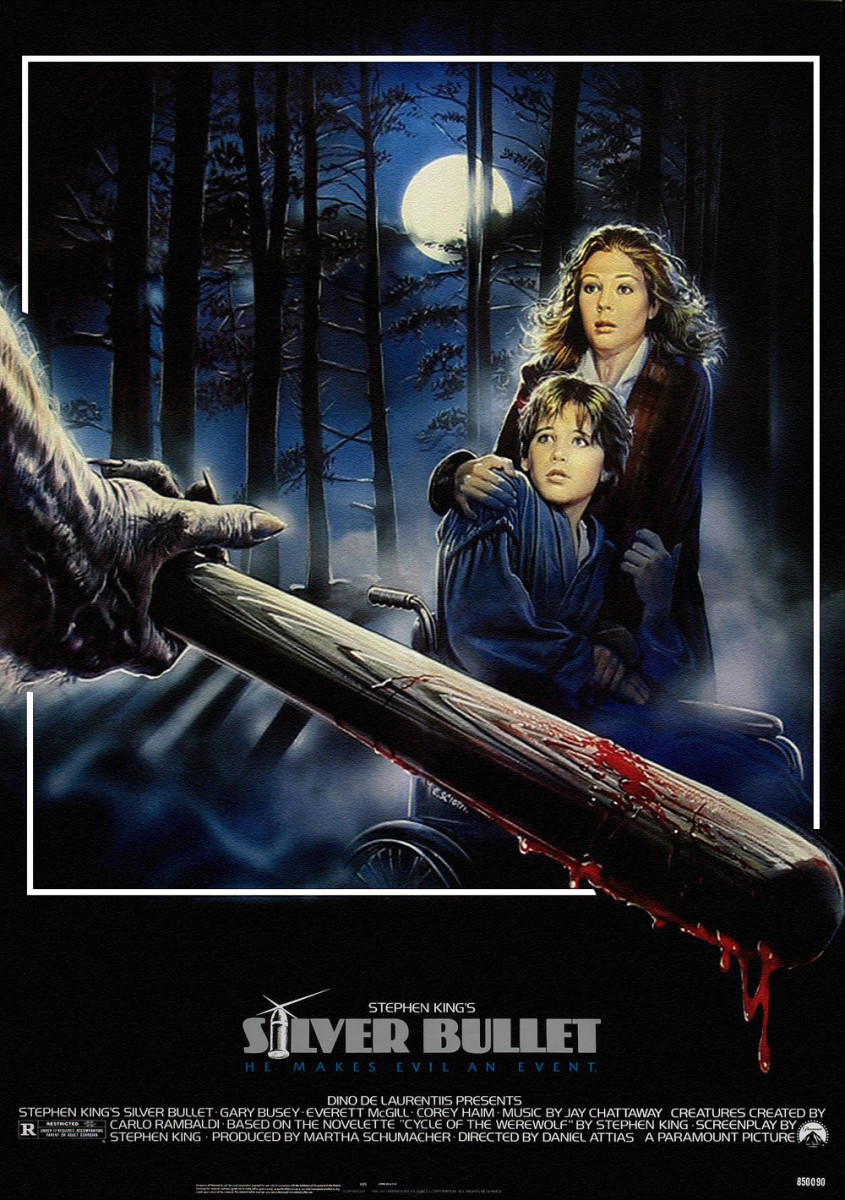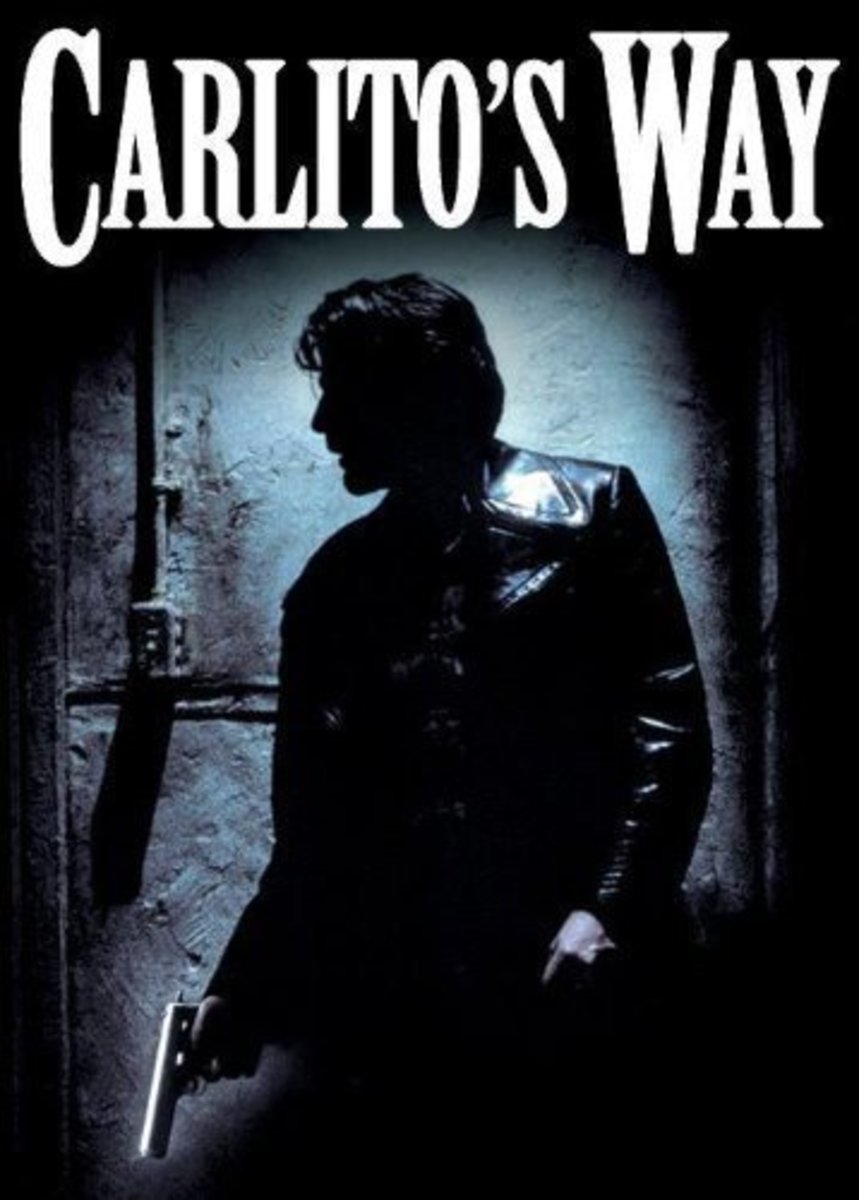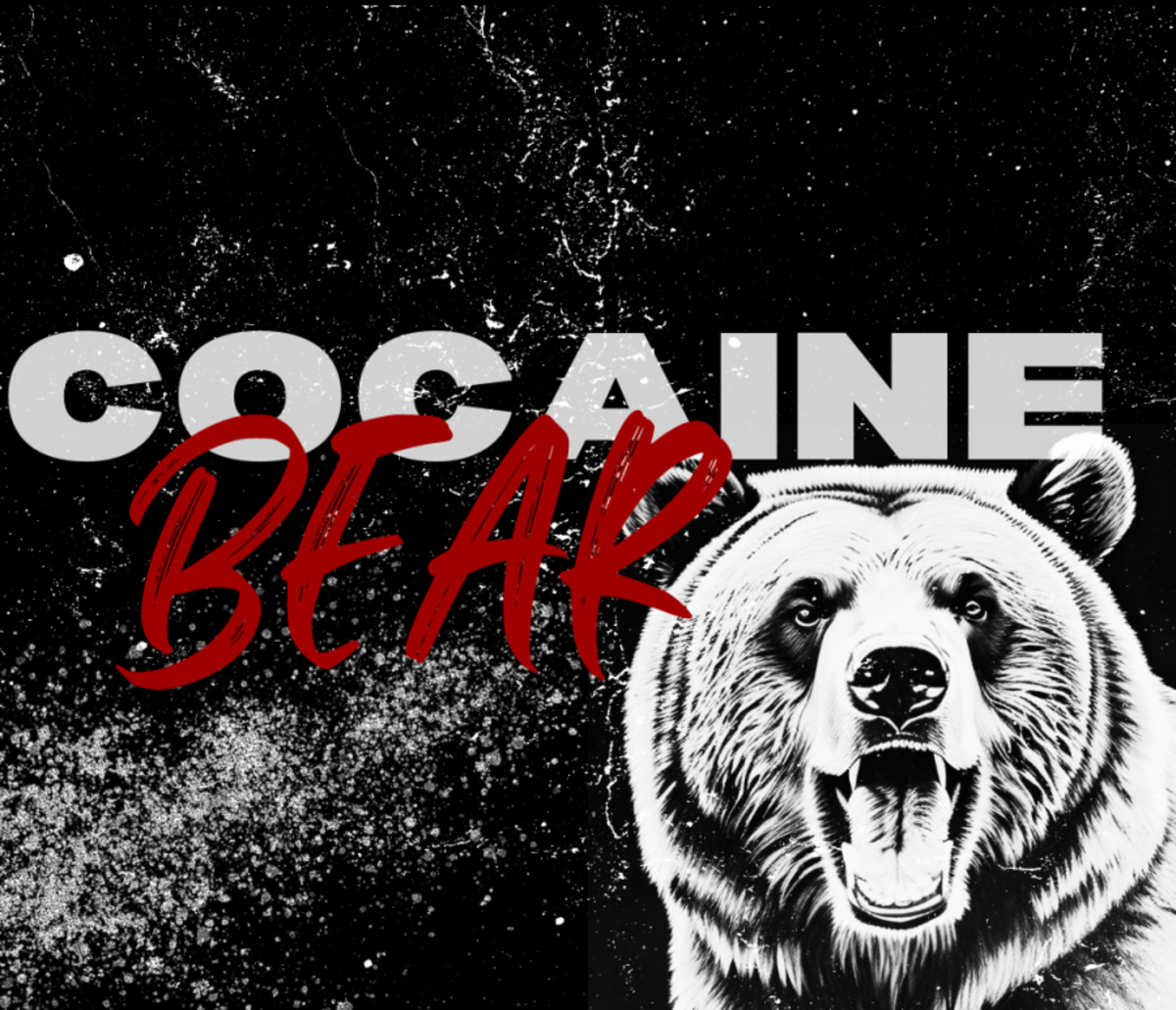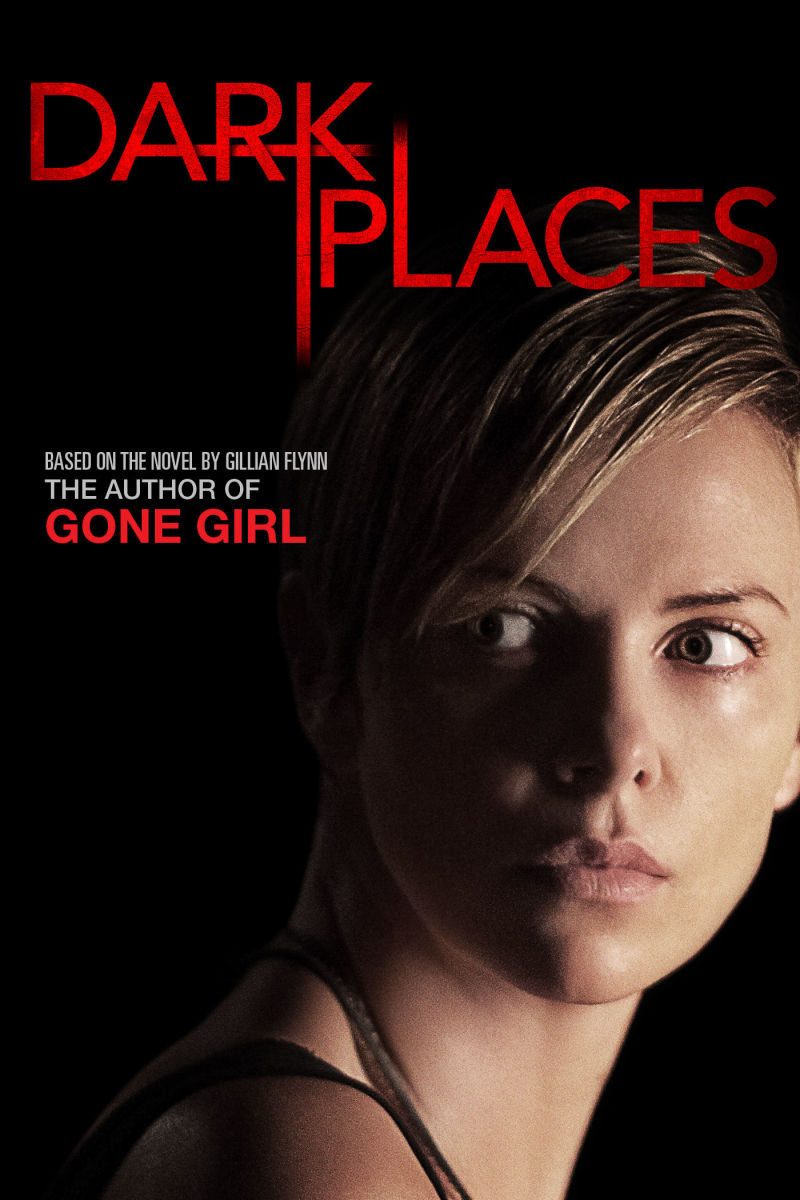The Panic in Needle Park: A Movie Review
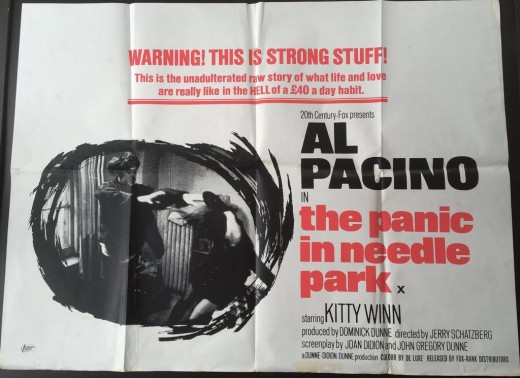
Let's get right to it.
I watched this film a week ago, having borrowed it for free from my local public library.
This is a 1971 film starring Al Pacino and Kitty Winn. Let's read the description we see, when the film is "Googled."
Quoting...
"Bobby (Al Pacino) is a heroin addict who lives in "Needle Park," the nickname for an area on the Upper West Side of Manhattan where junkies congregate. He meets Helen (Kitty Winn), a lonely homeless girl, and they fall in love. However, Bobby also introduces Helen to heroin, and she eventually becomes addicted, too. As Bobby and Helen become more and more dependent on each other and on heroin, their need for money to feed their habit grows, resulting in crime, desperation and betrayal."
One correction: In the film, Bobby did not "introduce" Helen to heroin or any other illegal narcotics. When he laid eyes on her, Helen was in a drugged-out stupor.
Now, as I said, I watched this film about a week ago, having borrowed it for free from my local public library. Rather, I should say that I watched as much of the film as I could stand.
You see, I hesitate to even call this essay a movie "review," because I hesitate to call "The Panic in Needle Park" an actual, proper "movie."
Why is that?
Because I believe that the story told in this film, would have been best and most properly executed as documentary --- not a dramatic, fiction film to be shown in theaters. I believe that the story of Bobby and Helen, in Needle Park, is an inherently documentary story, best shown on television.
Again, why is that? Why do I disqualify "The Panic in Needle Park" as a proper fictional, dramatic movie.
It has to do with what we expect of the cinema. When we go to the movies, and spend $8.50 - $15, not including snacks, we expect and hope for the following: a grand story in which the protagonist has a specific goal he is trying to achieve, or thing he is trying to obtain. The adventure concerns how he will overcome the various obstacles he will encounter en route to his goal. It is these roadblocks that provide the "tension" in the story, and so forth. Simple.
That does not exist "The Panic in Needle Park." For that reason, I recommend you give this one a pass and watch another Al Pacino film, the infinitely superior, "Carlito's Way," which is an actual fictional movie --- a real movie--- in a way that "Panic" could never even hope to be.
For example, at one point Helen suggests to Bobby that they get away from the lifestyle of Needle Park, and, perhaps, move out to the "country."
Bobby rejects the idea out-of-hand.
Why does he reject the idea out-of-hand?
Because, as he refers to Needle Park, he says "It's where I live."
That's it. He wants to go on living in Needle Park because that is where he lives.
His motivation for doing everything he does is: because that is what he does.
You see, "because" is the motivation that animates our everyday lives. We do what we do, and do it the way we do it because that is what we do; and that is how we do it. Cinema is supposed to provide us with the occasional escape from the inertia, which can become a bit dull at times.
The movie could have been more honestly titled: "The Life and Times of Bobby (and Helen) in Needle Park."
Now, an older, wiser version of the character of Bobby could have been a charismatic first-person narrator, guiding us through the bigger picture of drug use in 1970s New York, as seen through the window of his personal experience.
You see, something special could have been done with this material, as a documentary. I would offer, as an example, the magnificent documentary: Iceberg Slim: Portrait of a Pimp (2013) --- which is rather self-explanatory, isn't it?
If anyone had tried to adapt Mr. Slim's life and times into a movie, it would have been a mediocre-to-poor film.
Why? How can I say that?
Because, as one watches that profound and brilliant documentary, it becomes abundantly clear that as Mr. Slim tells his story, at the time, he had not been driven by any other motivation than "Because."
At the time when Iceberg Slim was a criminal, neighborhood hustler, and pimp, he did what he did because that is what he did.
Yes, Mr. Slim did eventually find redemption in the form of the love of a woman, whom he married and had children with; and in discovering his talent as a novelist, which, eventually, allowed him to make his living and support his family legitimately.
But all of that was decades away, in his future, when he had first started out as a pimp. He had no way of knowing that would be his future, had not thought anything like that would be his future; and, therefore, did not because he could not aim for it.
In other words, Iceberg Slim's life and times as a pimp is not the stuff for a proper movie, because his life and times do not feature a cinematic motivation.
Does that make sense?
However, an older, wiser, reformed version of Iceberg Slim, does indeed serve as a charismatic first-person narrator. He has become a likable person in his redemption.
Now, the argument I have been making against viewing "The Panic in Needle Park" as a proper dramatic, fictional movie, is precisely the reason I do not like (and even trust) dramatic movies about historical figures.
It seems to me that movies of historical biography try, in subtle ways, to assign heroic purpose to historical figures well before the historical persons, in question, had such heroic purpose. The attempt to retroactively graft this heroic purpose on to the historical figure, before they had it, is dishonest storytelling and clunky filmmaking.
I always, always, always prefer the documentary.
One last point
In an interview about the Francis Ford Coppolla-directed film, The Godfather, Al Pacino talks about how the film's producers were not quite sold on him in the role as Michael Corleone, even after he had been cast initially.
Mr. Pacino says that it is when they saw The Panic in Needle Park, they were finally convinced, finally sold on him as the right actor to portray the son and successor to his father, the New York crime boss, Vito Corleone.
It's not that I do not believe Mr. Pacino, it's just that I think that this is a strange conclusion to reach: that seeing him in "Panic" convinces producers of The Godfather, that he is the right actor to portray Michael Corleone.
There is nothing wrong with Al Pacino's performance in "Panic." It's just that "Panic" is, as I have said, a rather purposeless movie, because the Bobby character's motivation is limited to "Because."
The Corleone's, in three novels (Yes, there are actually three Godfather novels) and three movies, have always had purpose: to use organized crime as merely a means to the end of transforming their family into a part of the legitimate rich and powerful American elite.
You see, it would make more sense to me, for the producers to have seen the 1993 film, Carlito's Way (in an alternate dimension, made and released in 1971), and to have concluded that Al Pacino was exactly the right thespian to portray Michael Corleone.
My final word
Give "The Panic in Needle Park" a pass, and find a good, compelling documentary about narcotics use (heroin) in 1970s New York City, perhaps as seen through the eyes of a charismatic, older, wiser, former small or mid-level dealer, or something like that.
Thank you so much for reading.

